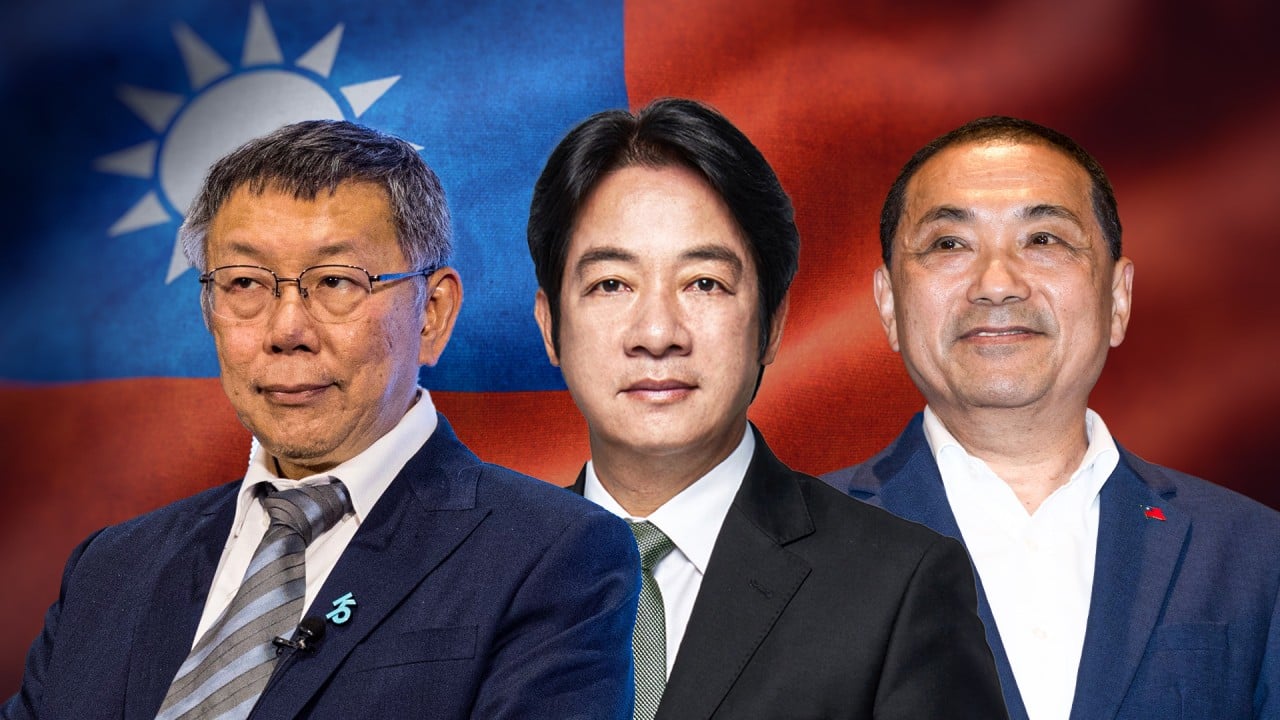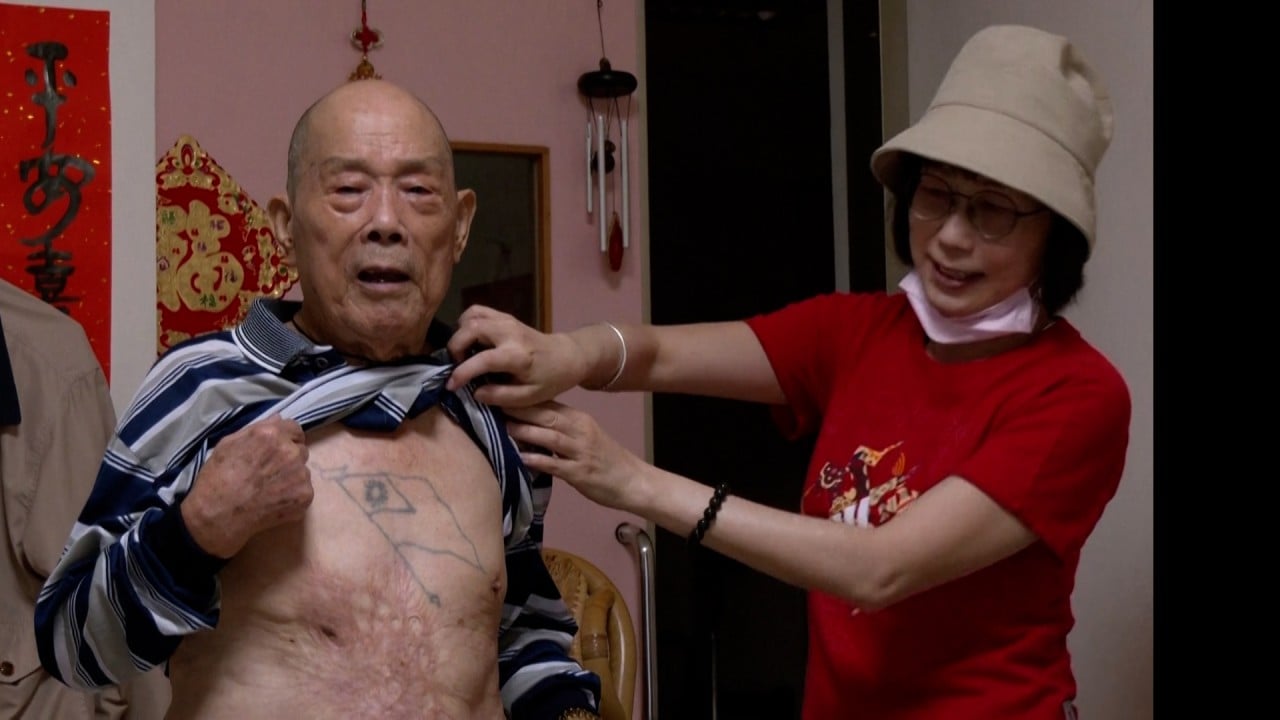
Taiwan election: Beijing restrained in response to William Lai’s win
- Allegations of military intimidation and interference by Beijing have been a feature of the ruling party’s campaign narrative
- A South China Morning Post tally shows no increase in aircraft sorties near the island in the three months ahead of Saturday’s voting
Lai, from the independence-leaning Democratic Progressive Party, secured an unprecedented third term for the ruling DPP, defeating Hou Yu-ih from the Beijing-friendly Kuomintang and Ko Wen-je, of the Taiwan People’s Party.
The DPP meanwhile lost its dominance of the legislature, winning 51 seats in that poll. The KMT took 52 seats, while the smaller TPP won eight, a result likely to be welcomed by Beijing.
In a brief statement, Beijing’s Taiwan Affairs Office said the results of the presidential and legislative elections showed that the DPP “does not represent the mainstream public opinion on the island”.
“The elections cannot change the basic pattern and development direction of cross-strait relations … nor can it stop the general trend that the motherland will eventually, and will inevitably, be reunified,” spokesman Chen Binhua said.
He said Beijing “resolutely opposes ‘Taiwan independence’ separatist activities and interference from external forces”.
Zhu Songling, a Taiwan affairs specialist at Beijing Union University, said with Lai as president, “tensions and confrontations” were likely to continue between Beijing and Taipei.
Beijing has labelled Lai as a troublemaker and “separatist”.
“The TPP will become a key force in the legislature, and we now have the question of which party might cooperate with it to take a majority,” Zhu said, adding that the result could have an impact on the DPP’s rule and its handling of cross-strait ties.
In mainland China, state media made few references to Taiwan’s elections on polling day. But “the US must not interfere in the elections in the Taiwan region in any form” was among the trending topics on social media platform Weibo, with more than 44 million views. Weibo also blocked the hashtag “Taiwan election 2024”.
Beijing is expected to keep up military pressure on Taiwan, which has intensified in the past year. Regular People’s Liberation Army manoeuvres continued around the island in the run-up to the elections, with no obvious surge in military activities, and there were no reports of major operations on Saturday.
However, Taiwan’s DPP government had ramped up its narrative of a military threat from the mainland, combined with accusations of Beijing’s “interference” in the polls.
As more than 19 million people prepared to vote on Saturday morning, Taipei reported eight PLA aircraft and six naval vessels near the island in its daily update.
According to a tally by the South China Morning Post, Beijing has continued to send aircraft and vessels towards Taiwan on a daily basis in the previous three months, but with no significant change in the pattern.
Nor have any large-scale military exercises been observed in the Taiwan Strait over the same period. According to Taipei’s official statements, the PLA’s major annual training programmes are usually scheduled between July and September.
Since January 1, the daily number of PLA aircraft detected has ranged from four sorties to a peak on Thursday, which saw 15 flights – significantly lower than the record-breaking 103 sorties of September 17.
The highest number of sorties in the three months before the election in Taiwan was recorded on November 1, at 43.
PLA manoeuvres near Taiwan have been more frequent since 2020 and intensified last year, in response to what Beijing described as Taipei’s “provocations” and “collusion” with the US.
Beijing regards the self-ruled island as part of its territory, to be brought under mainland control, by force if necessary. Like most countries, the US does not recognise Taiwan as an independent state, but Washington is opposed to any unilateral change in the status quo.
The PLA’s manoeuvres have been under the spotlight, with Taipei accusing Beijing of meddling in the elections by exerting military pressure against the island, a charge that has been one of the DPP’s main talking points in the race.
The Taiwanese government’s military messaging has also included assurances of the island’s readiness to defend itself against attack. On Friday, the defence ministry posted a series of images on X, formerly Twitter, depicting Taiwan’s forces.
“Full combat readiness, vigorous training,” it said, adding that the island’s armed forces “are the guardians of national security and the defenders of freedom and democracy!”
But if there has been no increase in the PLA’s activities, there is no lack of other explicit signals from Beijing, which has repeatedly warned that a victory for DPP candidate Lai Ching-te would risk conflict and called on voters to choose “the right side of history”.
Two weeks before the election, state broadcaster CCTV aired a news clip of the PLA’s 73rd Group Army – based just across the Taiwan Strait in Xiamen, Fujian province and dubbed “the first group in the front line on Taiwan” – kicking off its annual training.
The clip included a shot of the arena decked out with a huge slogan: “The motherland must be unified and will surely be unified.”
Chinese military aviation analyst Fu Qianshao said the PLA’s exercises were conducted according to “annual plans” and the arrangements had nothing to do with the Taiwan elections. He also said the DPP was “hyping” the threat from Beijing for election gain.
“The military exercises have become normalised and [the PLA] will not make changes because of the Taiwan elections,” Fu said.
As Taipei continues to ramp up its narrative of the threat posed by the PLA, opposition parties have accused the government of overdoing it.
On Tuesday, Taiwan’s defence ministry was criticised by the public and politicians when it issued a bilingual nationwide emergency alert warning – the first of its kind – to warn about the flyover of a rocket carrying a satellite launched by Beijing.
The message mistranslated “satellite” as “missile” in the English text, for which Taipei later apologised.
Critics also noted that the official statement put the satellite at an altitude of 500km (310 miles) – well above the limits of the Earth’s atmosphere in outer space – as it flew over southern Taiwan.
They pointed out that no warnings were issued when PLA missiles reportedly flew over the island in August 2022. Taipei’s explanation for not alerting the population on that occasion was that the missiles were in outer space.
The ministry reported on Thursday that it had detected another two satellites launched by Beijing, adding that their flight paths posed no threat to Taiwan.
Since early December, Taipei has also reported detecting balloons flying over Taiwan, with a surge in their numbers earlier this month. The Taiwanese government said the balloon flights were “a way of grey-zone attack and intrusion” by Beijing.
Since January 2, Taipei has reported daily sightings of the balloons – which it sometimes describes as “PLA balloons” – totalling 31.
Chinese foreign ministry spokeswoman Mao Ning on Wednesday said the DPP was trying to “mislead the residents and create panic”.




